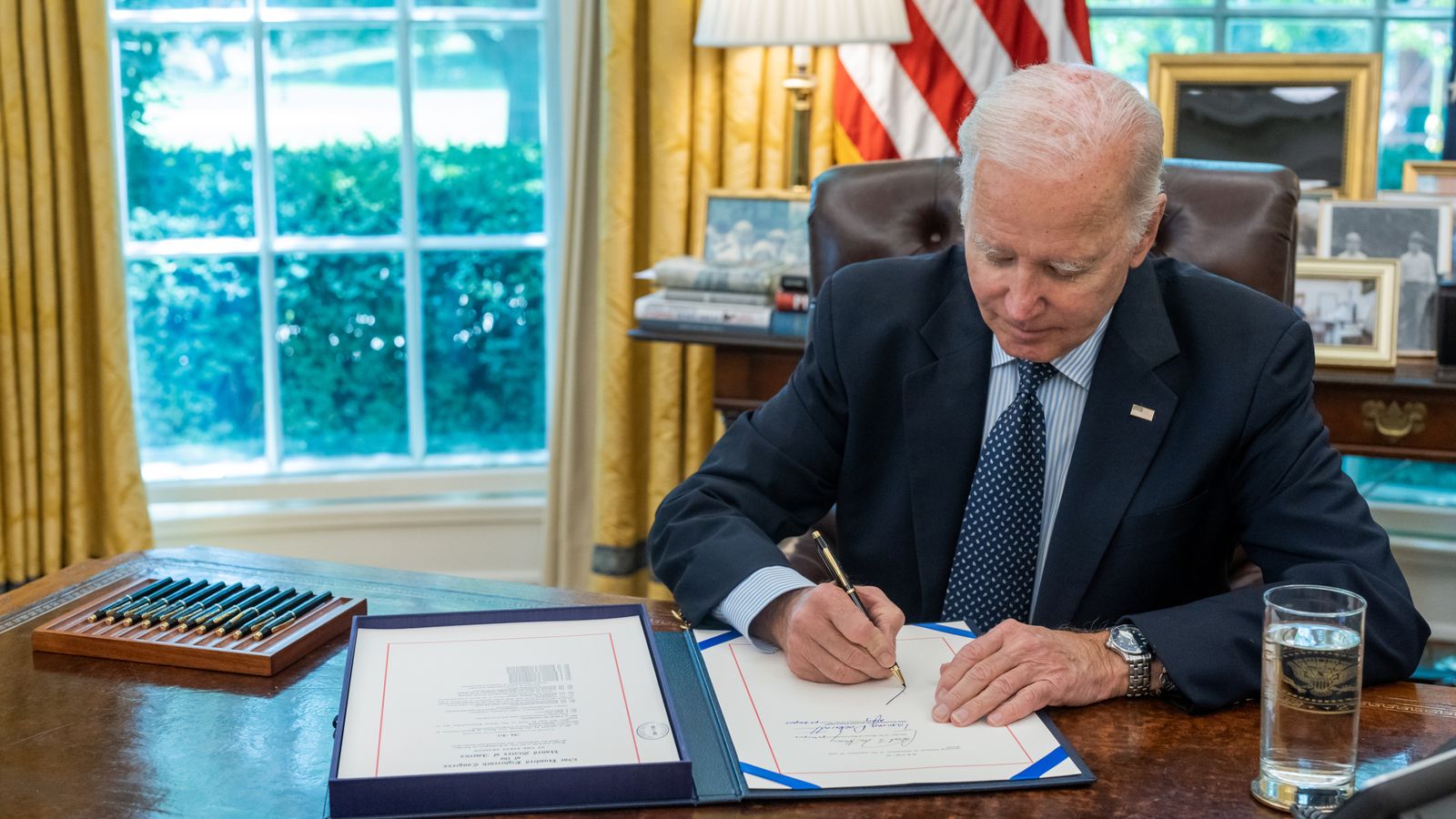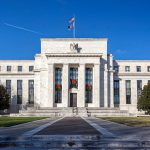Joe Biden has signed a “critical” budget deal to raise the debt ceiling for the US, saving the country from falling into an unprecedented default – the failure to make debt repayments.
The US president signed the bill in private at the White House on Saturday.
The Treasury Department had warned that the country would start running short of cash on Monday, which would have sent shockwaves through the US and global economies
The US debt limit stands at $31.4trn (£25trn) and raising it will ensure that its government has enough to borrow to pay debts already incurred.
The deal comes after weeks of a stand-off where the Republicans would not agree to raise the country’s borrowing limit unless the Democrats cut spending.
Be the first to get Breaking News
Install the Sky News app for free
An agreement was eventually passed by the House of Representatives and the Senate last week, which suspends the debt limit until 2025 and restricts government spending.
US politicians now have budget goals for the next two years to try and stabilise its economy as next year’s presidential election looms.
Crunch deal to raise US debt ceiling passes through House of Representatives
Trump v Biden – Round Two?
COVID-19: California governor Gavin Newsom survives attempt to remove him from office after rule-breaking coronavirus scandal
The bill also included food aid amendments for older US citizens and confirms a natural gas pipeline that many Democrats are against.
‘The stakes could not have been higher’
From the Oval Office, Mr Biden said: “Passing this budget agreement was critical.
“The stakes could not have been higher. If we had failed to reach an agreement on the budget, there were extreme voices threatening to take America, for the first time in our 247-year history, into default on our national debt.
“Nothing – nothing would have been more irresponsible. Nothing would have been more catastrophic.”
He added that Americans “got what they needed” and, via the bill, the government “averted an economic crisis”.
The 80-year-old also took the chance to underline the achievements of his first term as president, including support for high-tech manufacturing, infrastructure and climate change investments.






















